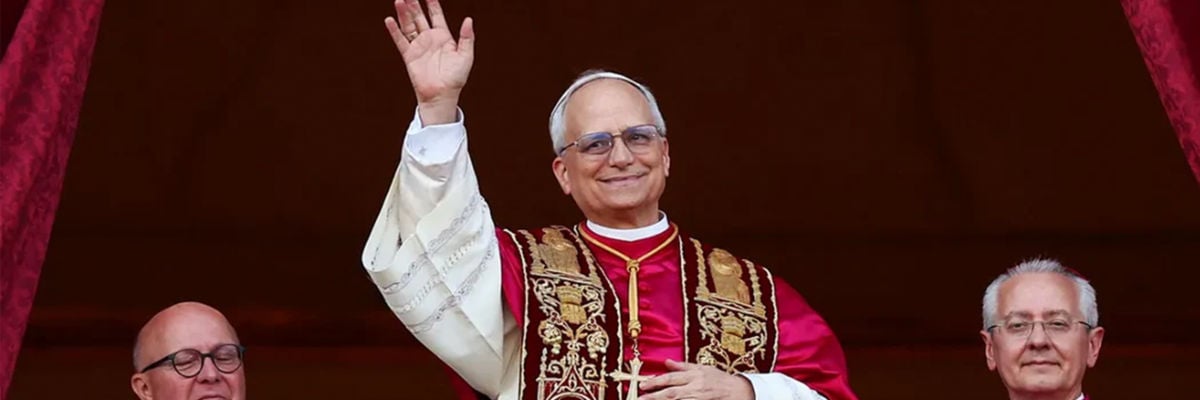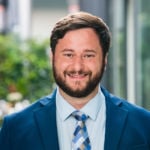
Audio only:
HABEMUS PAPEM! Here’s what we know about Pope Leo XIV, former Cardinal Robert Prevost.
Transcript:
Joe:
Welcome back to Shameless Popery, I’m Joe Heschmeyer and Cardinal Robert Privos of Chicago, Illinois was just named today the new Pope, Pope Leo the 14th. He is the first American Pope, and this comes literally one day after Alah Rose’s show. I said, well, he was the most likely American to become Pope. There probably wouldn’t be an American pope this time around, and he was probably unlikely.
CLIP:
What are the odds that we get an American Pope?
Joe:
I would say very low, but not zero.
CLIP:
Okay.
Joe:
Privos is the name that I sometimes hear throwing around as a possibility because of his work with the congregation For Bishops, he knows a lot of the Cardinals.
CLIP:
If you had a percentage, you would say Cardinal Privos is going to be the next Pope, this American Cardinal, what would you give it?
Joe:
I would put it in the low single digits.
CLIP:
Okay,
Joe:
So mea Kopa, he did indeed become Pope. I said it’d be someone unexpected. And on that count, at least I was right. So what do we know about the Cardinal? As you can imagine, this is going to be a little more informal. I’m in John Wayne airport, there’s News Act and people walking by, but I wanted to make sure to get something out just because people are asking me what do we know about him so far? We know a little bit. We don’t know a ton. He actually only became a cardinal in 2023, so he is somewhat of an unknown, I think even to the other Cardinals. But here’s what we do know. First, his pap name is a really fascinating choice, but Leo v 14th, this seems to be a nod to polio the 13th, who was POed from 1878 to 1903, that coupled with his more traditional looking papal garb is telling an interesting sign.
He didn’t feel the need to be John Paul III or Francis II or anything like that. Right now, I think a lot of what you’re going to be hearing are just rumors or speculation or things that aren’t very based in fact. But the Catholic Herald last week put it like this, they said Prevost is something of a cipher when it comes to many of the contested issues in Catholic life in terms of where he stands on matters such as the ordination of women, deacons, or the blessing of persons in same sex unions or the Latin mass. He’s played his cards awfully close to his chest. So he’s not someone who’s known for having strong maybe aire positions in either direction. He has a reputation of anything of maybe being something of a centrist, which could be very interesting. We just don’t know. And so I would avoid anyone claiming to know more than we have information to support on some issues.
The black and white issues like women’s ordination, the priesthood, he’s been perfectly clear, but a lot of the other issues seem like they just have not come up in a way where he’s had to address them. And so we we’re just guessing what he would do in those contexts. So as I say, here’s a little bit of what we know. He was born in Chicago. He’s the first American pope. He was born in 1959, so he’s 69 years old. He actually went to Villanova for college where he studied math. He then joined the Augustinian Religious Order. He then the Augustinian sent him to Chicago Theological Union where he got his MDiv. He went on to Rome to my own alma mater, the Pontifical University of St. Thomas Aquinas, better known as the Angelica, where he got both his license and his doctorate in Canon law.
And I think this is actually really interesting. His doctoral thesis was on the role of the local prior in the order of Saint Augustine, the Augustinians. Now, I suspect that’s going to actually be an interesting dimension that’ll play out in his pontificate. Pope Francis talked a lot about the synod on ality and this concept of ality, but the critique was, what do you mean by this term seems amorphous. What does it actually mean to talk about the church in a synod sort of way? So to have someone who’s actually got a doctorate level background and looking at what are called intermediate structures, what role you’ve got, the whole religious order, what’s the role of the local authority and those kind of middle levels, that’s really important. That’s really good to have a sense of. So he might bring a lot to the table in terms of that.
But we’ll see, since 1985, so basically my entire life, he’s spent a lot of his life essentially as a missionary in Peru, although he had some stints in the US as well as particularly in the last few years in Rome, sorry for the airport announcements and everything else in Peru, he taught Canon law. He taught Patristics, and he taught moral theology in the seminary. So he has a wide range in terms of what he’s taught on. Additionally, a wide range. He’s got a lot of languages that he speaks English, Spanish, Italian, and French and Portuguese, and he can also read German and Latin. So he is well prepared for maybe the international dimension of the papacy, and he has a reputation among those who know him as being both good at listening and asking really incisive sort of questions. So I expect what seems to be a humble leadership style, but who knows?
I mean, people change when they’re given the kind of executive roles. So in Pope Leo, I think we see a blend in terms of his background as a missionary, as an executive in his role in the Augustinian order as seminary professor, as an administrator, as a bishop in diocese in Peru, and since 2015 as the prefect for what’s called the Dicastery for Bishops, which is the Vatican. What was a congregation that determines affairs involving bishops, like who bishops are going to be in certain contexts, and they have an important role to play in serving the Pope. I suspect also related to this, you’re going to find a lot of criticisms for things the Dicastery for Bishops have done where, whether that’s Privas fault or his responsibility, or whether he’s just doing something, Pope Francis instance told him to do those kinds of things. Keep that in mind as you’re hearing these things.
For instance, Prevost is the one who after meeting with Pope Francis, removed Bishop Strickland from his diocese. But pretty clearly in those cases, he’s doing what he’s meant to do as someone serving the Pope. So my advice for everyone who is taking in this news is wait and see. Don’t have your guard up immediately regarding the Pope. And I’m sure he’s going to have his shortcomings. All of us do, but I think he’s going to also have a lot that he can offer us if we’re willing to receive it. So I’m excited to see what this pontificate holds, and I’m eager and seeing, yeah, what comes next? Well, what comes next for this channel? I’ve got two more videos coming up next week, so I will talk to you then. So for Shameless Popery, I’m Joe Heschmeyer. God bless you.



